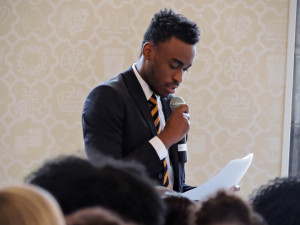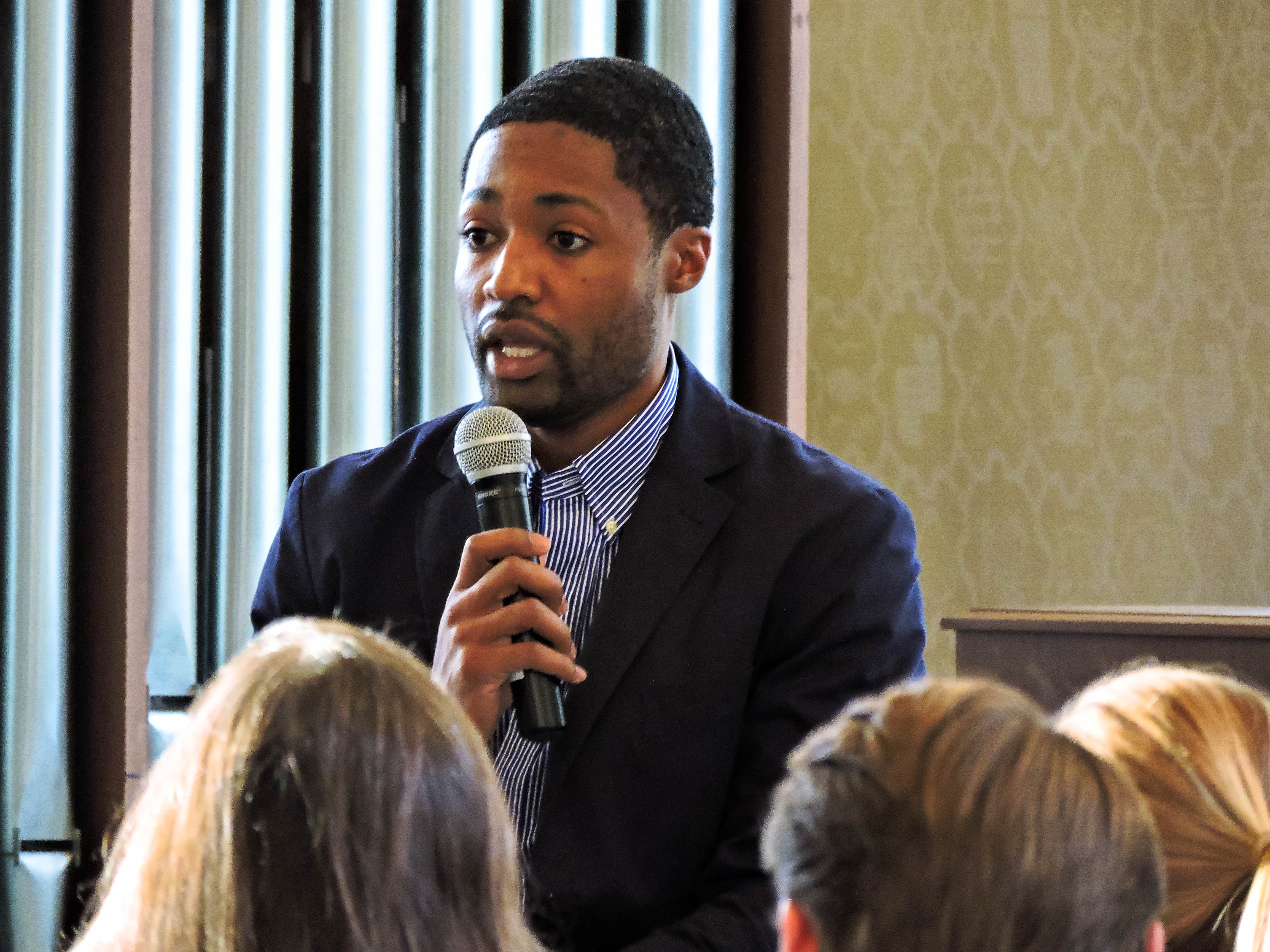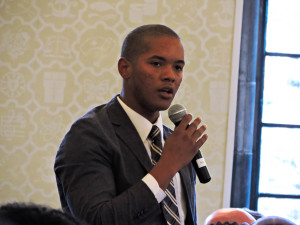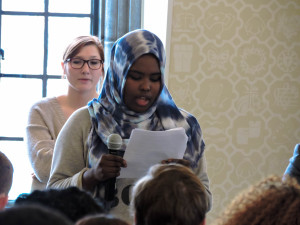
In response to the recent racist death threat found on a student’s apartment door, president Denvy Bowman invited students, faculty, and administration to discuss Capital’s human dignity policy.
Roughly 120 people attended the discussion yesterday in Kerns chapel.
After Gary Sandberg, dean of the chapel; Almar Walter, director of Capital’s Office of Diversity and Inclusion (ODI); and Branden Smith, associate director of ODI offered preliminary comments, the floor was open to students.
Early on in the conversation Walter established that the university wants to increase unity and solidarity within the campus community.
“We want to reassure you that we not only acknowledge that there are issues in our community that we can continue to improve, but … that we eagerly move towards these challenges,” Walter said. “In no way do we want to push things under the rug or pretend as if they don’t exist. We want to hear from our student body, and we want to hear from our faculty.”
Students from different organizations that work to support people of color prepared a set of necessary amendments to be made to the human dignity policy. The members also offered a new proposal to alleviate the racial tensions on campus.
“Our resolution to address discrimination and prejudice … are concerned by the prevalence of racial discrimination on Capital’s campuses … We speak to you strong in our convictions, unwavering and unapologetic, in addressing the acts of racial prejudice and discrimination on Capital’s campus,” said Nathaniel Carr, the president of the Ebony Brotherhood Association (EBA).
Alex Carter, the vice of president of EBA, called for the creation of a racial equity board.
“When a racial injustice happens, we don’t really know how they get solved and why … We would like to create a student-led, internal review board for racial equity, which would address any racist acts and race relations on and around campus including … racial slurs, discriminations, hate crimes, and microaggressions. The board will be made of seven members who express interest in being on the board or who are nominated,” Carter said.

Members also proposed a mandatory diversity and empathy retreat where students would learn how to accept and appreciate cultures that are different from their own. Brandon Briscoe-Pope, another student leader, elaborated on what would be expected at the retreat.
“The retreat will include a presentation of a testimony from an actual victim of racist or discriminatory acts to all attendants [and] break-off round-table discussions with Capital students in attendance to discuss racist acts committed against themselves, moderated by the victim. A workshop to describe what to do when a racist act or hate crime is committed, a healing workshop during the last few days so that all mental or emotional stress and anguish can be released,” Briscoe-Pope said.
While Walter said he could make no promises, he congratulated the student leaders for their efforts and said he is committed to continuing the conversation.
After student representatives spoke, several students also voiced what they felt were necessary elements to the discussion.
“What about the upcoming generation? … I encourage all of us to go out into the community … and really start talking to these kids and teaching the importance of [racial empathy],” Caroline Crawford said.
Andy Willmore agreed that we should connect with area youth because “they will have a perspective that’s just as valuable, despite being younger—or perhaps because they’re younger.”
Willmore also mentioned the possibility of starting a disabilities awareness organization on campus that would work with ODI.
Arielle Johnson brought the discussion back to Capital’s racial dynamics.
“What steps is Capital taking for retention of students of color?” Johnson said. “And what steps is Capital taking for people like me to see someone teaching—who I can see myself in that position?”
No definite answers came from these questions, but Walter reiterated his promise of a continued conversation.
“We walk into the place with certain biases that are a part of our life,” Sandberg said. “As the human dignity statement says, we realize that most of this comes from ignorance—and ignorance is not stupidity. Ignorance is just that we simply have not had exposure to things to open our thoughts.”



